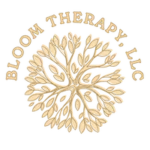Sibling conflict is often brushed off as childhood bickering or harmless rivalry. But for many people, the pain of sibling dynamics runs deeper than most recognize, and lasts far into adulthood. If your sibling relationship left emotional bruises that still affect how you feel about yourself, you’re not imagining it. Why sibling conflict hurts so much often comes down to the betrayal of what that bond was supposed to be: safe, mutual, and enduring. When it’s marked instead by chronic criticism, emotional neglect, or manipulation, it can leave real trauma behind.
At Bloom Therapy, we work with clients who are still carrying the weight of sibling relationships that never felt safe. Here’s why it can hurt so much – and how you can begin to heal.
Why Sibling Conflict Can Cause Emotional Trauma
Sibling wounds aren’t always caused by explosive events. Often, they develop over time through consistent invalidation, comparison, or subtle power imbalances. These patterns are painful – and they often go unspoken.
- Siblings share our earliest emotional experiences. They know our vulnerabilities, and when that closeness is used to control, shame, or undermine us, it can cause lasting damage.
- Society minimizes the impact. We’re often told “that’s just how siblings are,” which can prevent us from fully acknowledging the harm.
- Family systems reinforce roles. You may have been cast as the scapegoat, caretaker, or invisible one – and those roles can follow you long into adulthood, shaping your identity.
When we don’t name or explore these patterns, they can echo into our relationships, choices, and sense of self.
How to Tell If You’re Still Affected by Sibling Trauma
Sibling trauma can quietly influence your thoughts, behaviors, and emotional responses long after the relationship has faded. It’s not just about what happened – it’s about how it shaped you.
- You feel intense dread or anxiety before family gatherings, even if your sibling won’t be there.
- You experience emotional flooding or flashbacks when reminded of past conflicts.
- You silence yourself, people-please, or fawn in the face of tension – mirroring childhood coping mechanisms.
- You feel shame or confusion about what happened, especially if others don’t validate your pain.
These signs don’t mean you’re broken. They mean your nervous system is still protecting you from harm it once knew too well.
What Healing from Sibling Trauma Can Look Like
Healing from sibling trauma isn’t about minimizing the past or pretending it didn’t hurt. It’s about creating new meaning, releasing roles you never chose, and reclaiming your voice.
- Naming the harm. Whether or not your sibling agrees, your experience matters. Giving language to it can be liberating.
- Releasing outdated roles. Therapy can help you unhook from identities imposed by your family system.
- Grieving the sibling relationship you needed but didn’t have. Mourning unmet needs allows you to move forward with more compassion for yourself.
- Rewriting your internal narrative. You’re not too sensitive. You’re not to blame. You’re human – and you deserve care.
This kind of healing isn’t about fixing the relationship. It’s about repairing the part of you that was impacted by it.
How Therapy Can Help You Heal from Sibling Trauma
At Bloom Therapy, we support clients who are healing from painful sibling dynamics – whether the relationship is ongoing, estranged, or somewhere in between. Through EMDR, Art Therapy, and talk therapy, we help you:
- Understand how sibling trauma shaped your nervous system and self-image
- Process grief, guilt, anger, and self-blame in a supportive, grounded space
- Rebuild confidence and clarity through boundary-setting and emotional regulation
You don’t have to carry this pain alone – or forever. With the right support, you can make peace with what happened and move forward with more freedom and self-trust.
To learn more about our trauma-informed approach to family relationships, visit our Family Conflict Therapy page.
Related Posts You Might Find Helpful
– Toxic Sibling Signs: 5 Ways to Spot Emotional Harm
– Toxic Sibling in Adulthood: What You Can Do About It
– Healing from a Toxic Sibling Relationship Without Reconciliation
– Boundaries with a Narcissistic Sibling: How to Protect Your Peace
These companion posts explore everything from estrangement to emotional recovery, offering support at every stage of healing.
